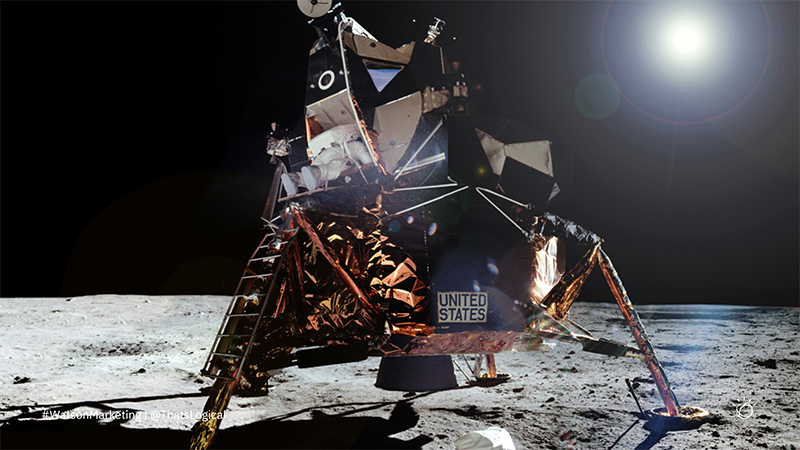Before launching into his October 30 talk about artificial intelligence for marketing, Michael Trapani, director of marketing at Acoustic (formerly known as IBM’s Watson Marketing), told a story about the moon. He flashed a picture of pioneering software engineer Margaret Hamilton next to her comically tall stack of handwritten code that powered the guidance computer for Apollo 11. At the time, the moon landing was a historic moment for software and humanity, but “this is where we are with AI,” he said gesturing to the photo. “Fifty years from now, we’ll look back and chuckle.”

That said, AI is making life easier today—especially for marketers. To find insights that inform the best possible customer experience, they need to prep and analyze tons of data. “We’re starting to feel more like data scientists than creative thinkers,” Trapani said. AI helps solve the problem by ingesting this data, finding patterns, and then making predictions and recommendations.
He specified that marketing doesn’t use general AI, the stuff of Terminator-style dreams. It employs narrow AI (think Siri or autocorrect), which is “really good at doing one or two things.” Companies like PayPal and Ticketmaster are using it to determine which communication channels are most effective, reduce customer turnover, improve the digital journey for consumers, and more. He assured the audience, however, that no jobs are on the line. “Human plus machine always beats the machine itself.”
AI buys those humans more time to be creative and evolve both their work and the technology itself. “It’s important to realize the tools we have are no longer good enough. We have to take risks and try something new,” Trapani said. “My advice? Shoot for the moon.”

This event was a collaboration between the Advertising and Marketing Communications Department, the Jay and Patty Baker School of Business and Technology, FIT/Infor DTech Lab, and IBM through the efforts of Associate Professor Jean Marc Rejaud and Professor Albert Romano.


